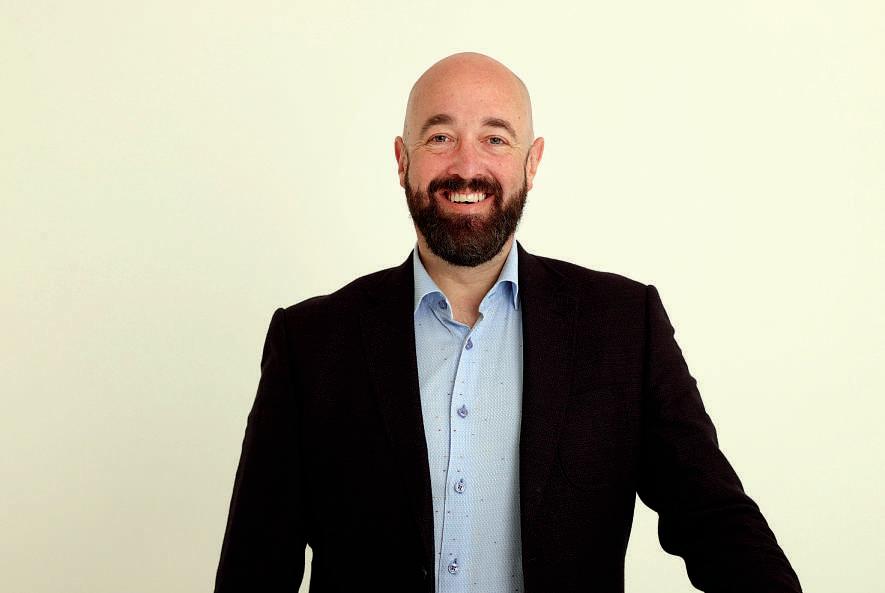
4 minute read
Rupert Gough
T HE YE AR TH E H O U S I N G M A R K ET F L I P P E D
In the last 12 months we’ve gone from ‘can’t get a home’ to ‘can’t hold onto a home’, with FOMO and cheap credit giving way to rising interest rates and rising inflation, writes RUPERT GOUGH
Advertisement
To say that the process for applying for a mortgage has changed in the past 12 months is a vast understatement. Close to 50% of all bank’s mortgage-lending policies have been changed at some point, a massive difference from the past few years when one or two minor policy tweaks are made every quarter or so. Some policies have even changed several times as banks find their feet in the new world of lending.
These policies range from the more well-known like the mortgage servicing rate - the rate that banks stress test your ability to afford your mortgage at (previously as low as ~6.5% and currently at around ~7.3% - 7.5%) through to how banks treat rental income in light of the new tax-deductibility rules on interest for investment properties. And then right through to the less well-known policies such as what purchase price constitutes a “luxury” property.
These alterations to the lending policies are almost all a direct result of three significant changes for lenders: • Rising interest rates which began their upward trend in August/September 2021; • The Credit Contracts and Consumer Act (CCCFA), which began on December 1, 2021; and, to a lesser extent • The new Financial Services Legislation Act which started on March 15, 2021.
Then throw in the mix loan-to-value ratios (LVRs), which were adjusted on November 1, 2021, meaning low deposit lending (greater than 80% borrowing) on owner-occupied properties could only make up a maximum of 10% of all borrowing from any given bank - down from the previous threshold of 20%.
As we approach the anniversaries of these changes, it is clear that the property market has dramatically shifted in a itude. Although it often didn’t feel it at the time, mortgages were comparatively much easier to get, particularly pre-December 2021. Results from a recent OneRoof survey indicate that the reduction in mortgage lending comes not from mortgages being too hard to apply for but from the 73% of people who think it’s too hard to get a mortgage and don’t bother to apply. The feeling is that everyone is being declined, so let’s not bother to apply at all.
In the olden days (before June 2021), a mortgage application introductory note went something along the lines of, “we, the customer, acknowledge that we spend a bit too much on dining out, but we can stop all that once we have a mortgage”. And 99.99% of new homeowners did precisely that.
But with the CCCFA now in place, the message to banks must be, “here is how we have lived frugally over the past three months, and this is how we expect to live going forward”. I can’t stress enough that until the CCCFA regulations are changed (due sometime soon), you must show you can live on a budget. If you take three months to rein in your spending, you will find that ge ing a mortgage is relatively low stress, and you’ll be a step ahead of 73% of the market that thinks it’s all too hard.
As the Official Cash Rate - now at 2% - and, therefore, mortgage interest rates have risen, buyers have been noticeably more hesitant about where interest rates could be in the near to medium term. Mortgage interest rates have gone up by around 2.5% (practically doubling since a year ago), and the concern is if they keep going up at such a fast rate. The banks don’t seem to be forecasting continued rapid growth with, as noted above, their stress rate si ing in the mid 7%. This level indicates that the bank’s worstcase scenario is that mortgage rates will hit 7% in the next few years. The banks are, obviously, keen on ge ing this right; under-shooting this rate could mean borrowers are suddenly unable to afford their mortgage.
If you are new to mortgages, it is worth taking an hour to ask yourself what you would need to change in your day-to-day living expenses to be able to pay 7% per annum on your mortgage?
Once you have that budget planned out, even if it will take you a year or so to achieve, try your best to implement it - pay your mortgage off as though the interest rates were 7% - and give yourself some comfort in case interest rates start heading up again.
The best advice I can give potential home buyers is to shift how they think about applying to the bank from the old way, which was “show the bank I could theoretically afford a mortgage of 7%”, to the new way, “I have been living for at least three months as though I can afford a mortgage of 7%”.
For current homeowners, the best advice is to start planning for the worst-case scenario. The irony is that if enough people reduce spending, inflation will likely come back down, and the interest rates won’t get as high as 7%. • Rupert Gough is the founder and CEO of Mortgage Lab and author of The Successful First Home Buyer
Crafted with care in New Zealand

That ’s why it’s always right with Russells
In our Nelson sewing room and blind studio we combine hand craftmanship and a meticulous eye for detail with the best technology for absolute accuracy and consistency.










